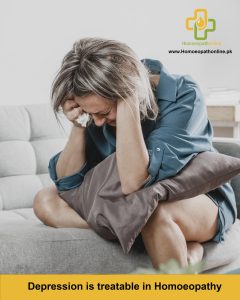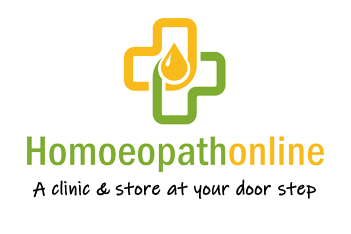Depression, stress, anxiety are often used interchangeably. Depression (major depressive disorder or clinical depression) is a common but serious mood disorder. Depression, in psychology is a disposition or emotional state that is set apart by sentiments of low self-worth or guilt and a diminished capacity to appreciate life.
Depression influences an expected one out of 15 grown-ups (6.7%) in any given year. What’s more, one of every six individuals (16.6%) will encounter depression sooner or later in their life. Depression can strike whenever, yet all things considered, first shows up amid the late adolescents to mid-20s. Ladies are more probable than men to encounter depression. A few investigations demonstrate that 33% of ladies will encounter a noteworthy depressive scene in their lifetime.
Antecedent (former):
Gloomy life occasions can build a man’s weakness to depression or trigger a depressive scene. Negative cogitations around oneself and the world are additionally imperative in delivering and keeping up depressive symptoms. Be that as it may, both psychosocial and biochemical systems appear to be vital causes; the boss biochemical reason seems, by all accounts, to be the faulty control of the arrival of at least one normally happening neurotransmitters in the brain, especially norepinephrine and serotonin. Diminished amounts or decreased movement of these synthetic substances in the brain is thought to cause the discouraged mind-set in a few sufferers. Not everyone who is depressed or manic experiences every symptom. Some people experience a few symptoms, some many. Severity of symptoms varies with individuals and also varies over time. A man who is discouraged as a rule encounters a few of the accompanying symptoms:
- Persistent sad, anxious, or “empty” mood

- Feelings of hopelessness, or pessimism
- Irritability
- Feelings of guilt, worthlessness, or helplessness
- Loss of interest or pleasure in hobbies and activities
- Decreased energy or fatigue
- Moving or talking more slowly
- Feeling restless or having trouble sitting still
- Difficulty concentrating, remembering, or making decisions
- Difficulty sleeping (Insomnia), early-morning awakening, or oversleeping
- Appetite and/or weight changes
- Thoughts of death or suicide, or suicide attempts
- Aches or pains, headaches, cramps, or digestive problems without a clear physical cause and/or that do not ease even with treatment
Risk Factors for Depression:
Several factors can play a role in depression:
- Biochemistry: Differences in certain chemicals in the brain may contribute to symptoms of depression.
- Genetics: Depression can run in families. For example, if one identical twin has depression, the other has a 70 percent chance of having the illness sometime in life.
- Personality: People with low self-esteem, who are easily overwhelmed by stress, or who are generally pessimistic appear to be more likely to experience depression.
- Environmental factors: Continuous exposure to violence, neglect, abuse or poverty may make some people more vulnerable to depression.
Forms of depression:
- Psychotic depression, which happens when a serious depressive sickness is joined by some type of psychosis, for example, a break with the real world, delusions, and hallucinations.
- Postpartum depression, which is analyzed if new mother builds up a noteworthy depressive scene inside multi month after delivery. It is assessed that 10 to 15 percent of ladies encounter postpartum depression subsequent to conceiving an offspring.
- Seasonal affective disorder (SAD), which is portrayed by the beginning of a depressive disease amid the winter months, when there is less regular daylight. The depression for the most part lifts amid spring and summer. SAD might be viably treated with light treatment, yet almost 50% of those with SAD don’t react to light treatment alone. Stimulant medicine and psychotherapy can diminish SAD symptoms, either alone or in blend with light treatment.
- Bipolar disorder, additionally called hyper depressive ailment isn’t as pervasive as real depression or dysthymia, and described by cycling state of mind changes: serious highs (lunacy) and lows (depression).
Relief/Treatment:
Homeopathy is powerful because it is an all-encompassing therapeutic practice that regards the individual all in all and therefore tends to the fundamental issues that prompt disease. Homeopathy perceives the uniqueness of every person and treats him/her appropriately.
Recognizing the elements that reason stress, and the different responses to such factors, are of most extreme significance in homeopathy since symptoms are regularly showed when one is presented to an outer power more grounded than his/her inward essentialness and immunity. Hence treating symptoms externally will just go about as a transitory comforting and won’t give an enduring fix. Established homeopathy, in its mean to fix the fundamental stress response, can forever wipe out its symptoms.
Kamal Laboratories have formulated a combination of homeopathic agent to relieve stress and depression. The combination named as LORI tablets include Passiflora 6, Chamomilla 6, Avena sativa 6, Kali Brom 6, available in 10 tablets and 100 tablet size packaging.
Generally following Homoeopathic remedies can be considered according to symptoms of patients and only a registered homoeopathic practitioner can prescribe them.
Crataegus, Cactus, Ignatia, moschus, valeriana, Kali phos, Pulsatilla etc.
